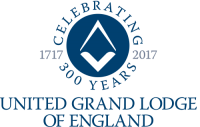Founding Bro Hugh Morton
Hugh Morton was a freemason and founding member of Lodge Temperance 2557 which in 1895 met at the Masonic Hall, Shakespeare Street, Newcastle-upon-Tyne. He was a master mason from Newcastle Upon Tyne Lodge no 24.
Bro Hugh started his masonic career with St Peter’s Lodge no 481 where he was initiated on 14th June 1875, passed to the second degree on 9th August and raised to the sublime degree of master mason on 18th September 1875. He also joined Walker Lodge no 1342 on 8th December 1875 but was only there for a year.
He remained at St Peter’s Lodge no 481 until he moved to Newcastle upon Tyne Lodge no 24 where he became a joining member on 7th December 1882.
In early 1895 a group of Freemasons thought it a good idea to form a Lodge which would have no intoxicating drinks at any of its meetings. The petition forwarded to the United Grand Lodge of England for the formation of Lodge Temperance shows he was a master mason and subscribing member of Newcastle Upon Tyne Lodge no 24, living at 16, Victoria Square, Newcastle upon Tyne and working as a clothier.
There is no evidence that Bro Hugh held office in Lodge Temperance 2557 and in fact was only a member for a year resigning in September 1896. The Lodge records do not tell why he resigned but he was first elected to Newcastle City Council on November 1st 1884, and then became a magistrate in 1892 and with increasing responsibilities on various committees perhaps his duties didn’t allow time for Freemasonry.
Bro Hugh was born in Scotland on July 17th 1851 and his father, Robert, came to Newcastle and settled in the city when he was very young. He married Jane Walker Stobbs from Ryton, Co. Durham on the 24th January 1876 in Newcastle and they had five children:
- Robert Walker (b 1877)
- Ainsworth (b 1879)
- Amelia Moffat (b 1882)
- Ethel (b 1883)
- Hugh ( b 1889)
Bro Hugh’s three sons were all privately educated; Robert and Ainsworth were borders at the North Eastern County School, Barnard Castle and Hugh a border at St Bee’s Grammar School, Cumberland.
Sadly, Jane died on 31st December 1921 but Bro Hugh remarried two years later to Jane Isabella McCartney on 18th September 1923. She died on September 10 1929, in her 73rd year leaving Bro Hugh the huge amount of £45,500 in her will.
He was the owner of a tailor’s and clothier’s shop in Grainger Street, but by the time of the 1911 census had retired from active work in the business to concentrate on his Council work. He was made Alderman on July 6th 1904. He was made vice-chairman on the Watch Committee in 1908 and four years later he became chairman, a post he held through the difficult and trying years of the war till he retired from the committee in 1919.
He was for many years chairman of the City Mental Hospital Committee from which he resigned in 1924. Later his services were chiefly devoted to membership of the Watch, Finance, Schools, Charities, Estates and Property, Parliamentary, and the New Bridge Committees.
He also represented the Council on the Tyne Improvement Commission, and was chairman of the Trustees of the Hospital of St. Mary the Virgin, and Governor of the Royal Grammar School, as representative of the Council.
Although pressed from time to time, Bro Hugh steadfastly refused to accept the offices either of Sheriff or Lord Mayor.
He was a large property owner and a prominent figure in building society work and for many years he was chairman of the Northern Counties Building society and his advice in connection with this type of work was often sought. He was well known as a valuer and acted as property surveyor for the Northern Counties Society.
He was a Justice of the Peace for Newcastle a position he held for 39 years and had been chairman of the Licensing Committee. He was also Deputy Lieutenant for the County of Newcastle upon Tyne.
When he was elected a freeman of the city on November 10th 1930, Dr. J. W. Leech, then deputy Lord Mayor, who presided over the gathering, paid great tribute to his work.
“The whole of his services,” Dr. Leech said, “have been spent well in the interests of the community. He has filled great positions of trust and responsibility ably and well. It is because of long service combined with meritorious service that this distinction is being conferred on Alderman Morton. High character and integrity are the principles accepted by this council above all other qualities.”
Bro Hugh died on 23rd August 1931, aged 80 years, and there are several articles in the Newcastle Evening Chronicle and Journal of the time reflecting on his life and career. The Lord Mayor of Newcastle, Alderman David Adams, paid a tribute in an interview with the Newcastle Evening Chronicle:
“The passing of Alderman Morton removes the father of the Newcastle City Council and a notable link with the past and more peaceful generation.
Those days of our fathers saw stern resistance to the encroachment of municipal councils into those diverse realms of activity which today are admitted to be the proper field for common effort – housing, education, land ownership, municipal trading and public hygiene.
The late Alderman possessed a singularly clear vision and a capacity for lucid and convincing expression and was for many years in a talented company of Novocastians, now alas few in number, and to whom the present generation are heavily indebted. “
Bro Hugh was buried at St Andrew’s cemetery, Newcastle, on Wednesday 26th August 1931 and was survived by his three sons and two daughters.
Become a Mason
Check out our FAQs



